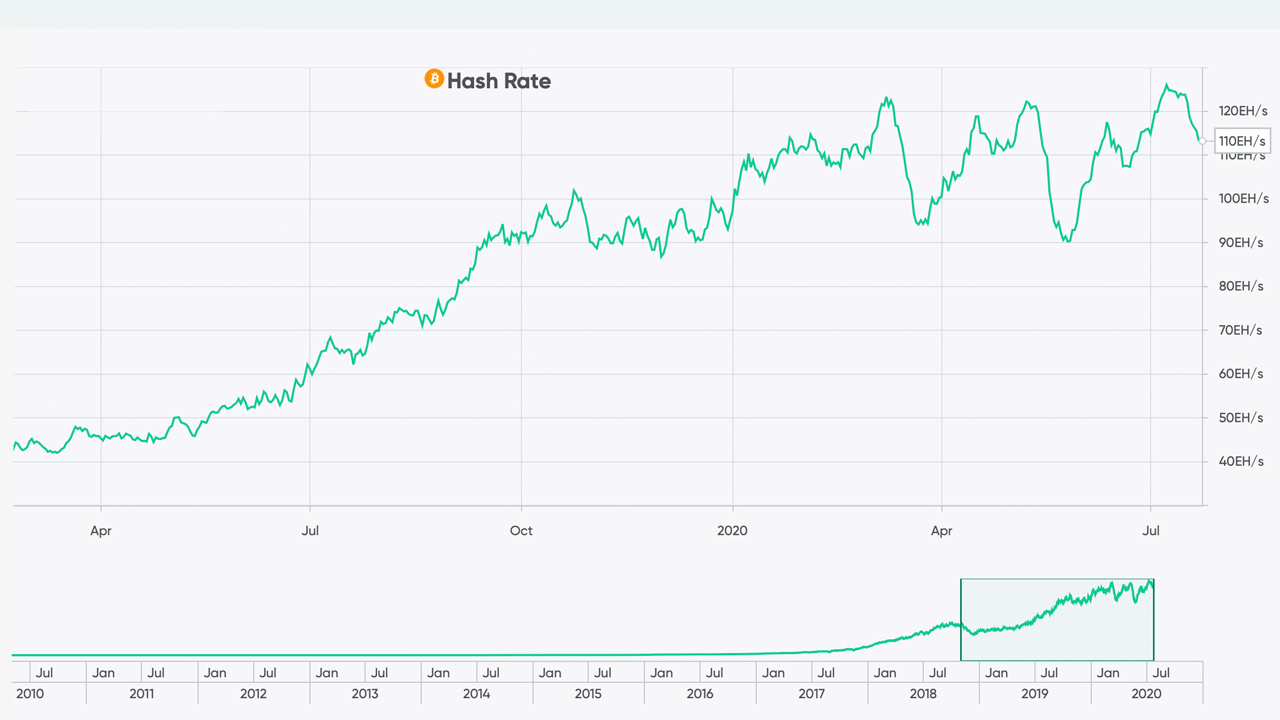Digital currency proponents have been discussing the 2020 monsoon season in East Asia and how there’s a possibility it could wreak havoc on large bitcoin mining operations located in China.
Recent estimates note that China has 50% of the world’s bitcoin mining capacity but if mining facilities are taken out by heavy rainfall and flooding, Bitcoin’s hashrate could plummet fast.
During the first week of July, the Bitcoin (BTC) network hashrate touched 125 exahash per second (EH/s). Alongside this, the price of the crypto asset has been meandering in the $9k region for a while now.
Since July 7, BTC’s hashrate has dropped from 125 EH/s to roughly 110 EH/s on July 21, losing 12% of hashpower. Other SHA256 assets like bitcoinsv (BSV) and bitcoin cash (BCH) also have a decent portion of hashrate stemming from China.

Right now China and many countries in East Asia are suffering from a really bad monsoon season.
A number of bitcoiners have been talking about the devastating effects of the monsoon season, heavy rainfall, and flooding on Chinese mining operations. For instance, Daniel Frumkin tweeted about the subject on July 21, after retweeting a statement written by Nic Carter.
Coin Metrics founder Nic Carter and the founder of Adamant Capital, Tuur Demeester were discussing “the (potential) situation with the Three Gorges Dam” on Twitter. Remarking on the subject Frumkin tweeted:
Another example of the separation between mining and the rest of the Bitcoin industry. With ~50% of BTC’s hashrate located in Sichuan, the implications of serious flooding and dam failures are potentially huge. It’s been a major topic in the mining bubble for weeks.
Scientists have traced the powerful weather to a “warming hot spot in the Indian Ocean” and China has seen “historic flooding.” One of the biggest concerns for China is the straining of the Three Gorges Dam, as the structure has taken a beating this monsoon season.
Three Gorges Dam is the largest hydroelectric dam in existence. Sichuan is also home to the largest concentration of bitcoin mining operations worldwide.
Sichuan is located upstream of the Three Gorges Dam and there are many other smaller rivers and tributaries that can flood in the region as well. Experts believe that the high-pressure hotspot in the Pacific Ocean is creating massive quantities of condensation which is leading to heavy rainfall.
Traditionally the wet season in Sichuan is good for bitcoin miners as the running water helps power hydroelectric resources.
Too much water and flooding can be devastating to bitcoin mining operations and a number of wet seasons have damaged Chinese mining operations in the past. During the first week of July 2018, news.Bitcoin.com reported on heavy rainfall in China allegedly damaging thousands of ASIC mining rigs.
That week a 30% drop in the global hashrate was attributed to those floods.
What do you think about the possibility of flooding in China affecting bitcoin miners? Let us know what you think in the comments section below.
Image Credits: Shutterstock, Pixabay, Wiki Commons, Charts.Bitcoin.com
Disclaimer: This article is for informational purposes only. It is not a direct offer or solicitation of an offer to buy or sell, or a recommendation or endorsement of any products, services, or companies. Bitcoin.com does not provide investment, tax, legal, or accounting advice. Neither the company nor the author is responsible, directly or indirectly, for any damage or loss caused or alleged to be caused by or in connection with the use of or reliance on any content, goods or services mentioned in this article.



